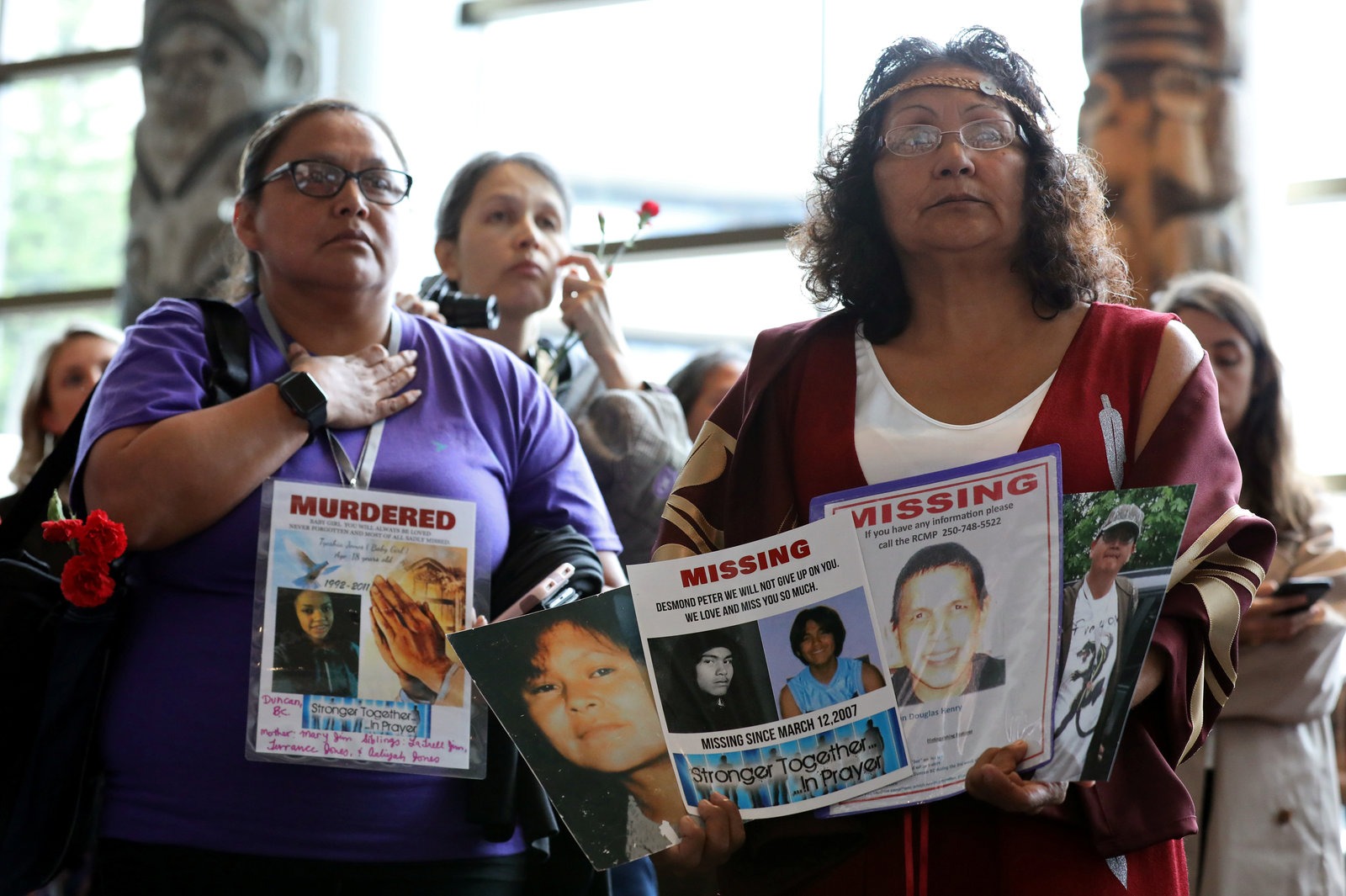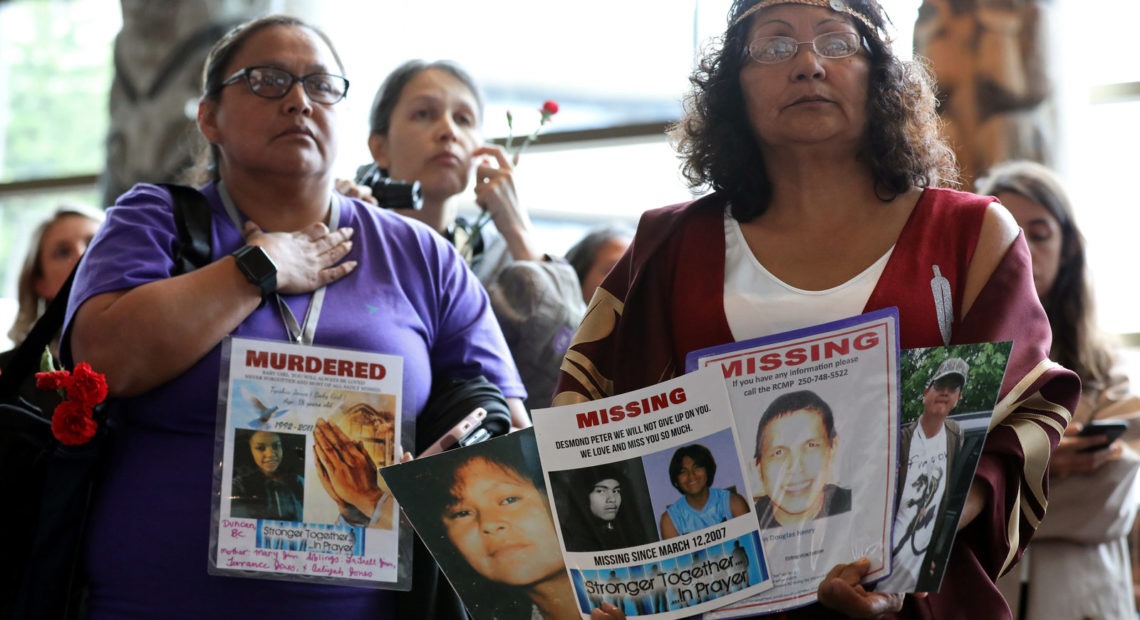
WA State Will Soon Have An Alert System For Murdered And Missing Indigenous People
Read
For the first time, Washington State will have an alert system for missing and murdered indigenous people.
A new bill was signed on Thursday to create it.
“The women who have been lost, those who have passed on they will know that they’re never forgotten,” said State Rep. Debra Lekanoff of the Tlingit Tribe. “The women who are still missing. The songs, the voices, the work you’ve all done, they’re gunna know that we’ll find them.”
Tribal members honored those who moved the legislation forward with ceremonial blankets.
The vibrant blankets were wrapped around individuals representing one’s ancestors and elders who will come and help you.
According to the Urban Indian Health Institute in Seattle, indigenous people are missing and murdered at higher rates compared to any other ethnic group.
Indigenous women also go missing four times the rate compared to white women.
Related Stories:
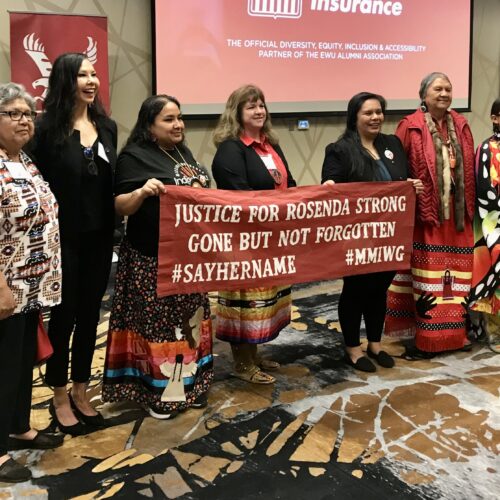
MMIWP awareness events raise Native voices in search for missing loved ones
As the national awareness month on the crisis starts, families continue calling attention to the barriers and challenges they experience when addressing the missing and murdered indigenous women and people MMIW/P crisis in Washington.
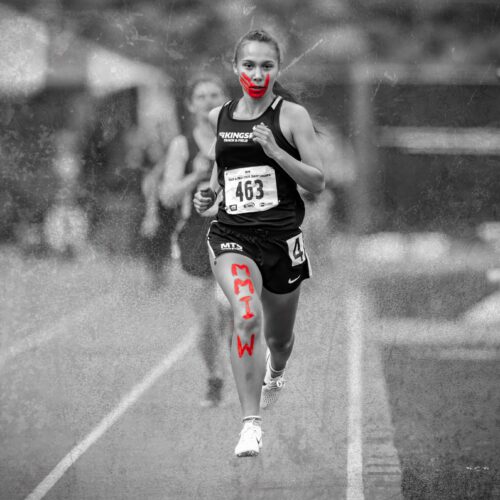
In their own words: Rosalie Fish
For over 30 years, Native American Heritage Month has been federally recognized. Northwest Public Broadcasting reporters are interviewing Indigenous people throughout the region to learn what they think about the month and what they want people to understand about their culture and who they are. Reporter Lauren Gallup spoke with Rosalie Fish, a University of Washington student and athlete, who is using her platform to raise awareness of the Missing and Murdered Indigenous Women crisis. As the month ends, the recognition does not and we continue to publish these conversations and stories to inspire more engagement and understanding.
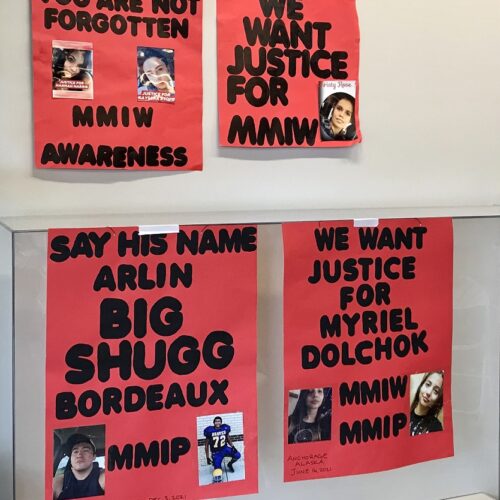
WSP Launches Missing Indigenous Person Alert System
Posters with images of missing or murdered indigenous people were displayed at the MMIW/P Healing Gathering in Seattle in May. Credit: Johanna Bejarano. Read The Washington State Patrol (WSP) officially

